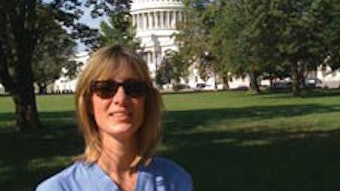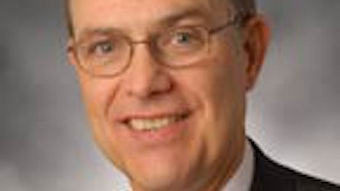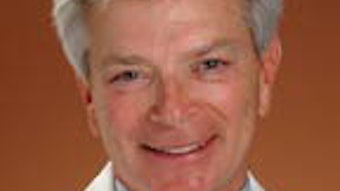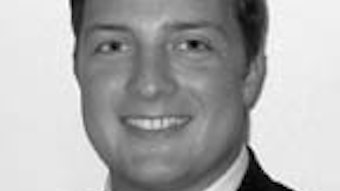AAO-HNS Mid-Year Legislative Update
Time flies when you’re tracking multiple legislative efforts. During the first half of 2011, the AAO-HNS Government Affairs team has worked hard to help advance and/or monitor the Academy’s legislative priorities on the federal and state levels. Here is an update regarding the issues impacting the specialty this year. On Capitol Hill, health-related issues remain a high priority and have generally only been rivaled in 2011 by national budget and debt negotiations. The new Republican majority in the U.S. House of Representatives and the accompanying large freshmen class of legislators has resulted in a vastly different legislative atmosphere. To that end, the Government Affairs team has increased its efforts to educate Members of Congress about the issues important to the AAO-HNS via regular email updates, additional in-person meetings, and press statements when applicable. Across the country, each of the nation’s 50 state legislatures convened this year. By July only eight states will remain in regular session, as most will have adjourned for the year. At the time of printing, 128,086 state-based bills had been introduced in the United States in 2011. The AAO-HNS is monitoring more than 571 bills at the state level, including holdover bills from 2010. Of those, there are 35 state legislative bills that have been identified as being of particular importance to the AAO-HNS. We have provided state otolaryngology leaders with customized tracking reports, notifications, and alerts for these legislative bills of interest. Federal Legislative Efforts Medicare Physician Payment Reform: Following a year of heightened payment instability and multiple short-term “fixes,” U.S. House of Representatives Speaker John Boehner (R-OH) clearly identified Medicare physician payment reform as a priority for the first session of the 112th Congress. In February, the AAO-HNS was among a small group of physician organizations invited to discuss possible payment reform options to accompany an assumed full repeal of the Sustainable Growth Rate (SGR) formula. The AAO-HNS also submitted an official response to the House Energy and Commerce Committee in April, following a bipartisan request for input regarding Medicare physician payment reform. If Congress fails to enact payment reform legislation this year, physicians will face a payment cut of nearly 30 percent on January 1, 2012. Repeal of Independent Payment Advisory Board (IPAB): Now that we are more than one year beyond passage of the Affordable Care Act (ACA), health-related organizations, including the AAO-HNS, have been working with Members of Congress to identify provisions in the new law that are particularly egregious in relation to the delivery of healthcare. Specifically, there is broad support across the health industry to repeal the ACA-mandated creation of the IPAB. The IPAB, an unelected, unaccountable body of individuals appointed solely by the President and charged with creating Medicare payment policy, usurps the rightful authority of our elected officials to create and shape Medicare policy. By limiting Congressional authority, IPAB essentially eliminates the transparency of hearings, debate, and the meaningful opportunity of stakeholder input. Furthermore, fewer than half of the IPAB members can be healthcare providers, and none are permitted to be practicing physicians or be otherwise employed. In January, U.S. Rep. Phil Roe, MD (R-TN) introduced H.R. 452: “Medicare Decisions Accountability Act of 2011.” The AAO-HNS strongly supports H.R. 452, and its Senate companion bill (S. 668) and has been working to identify co-sponsors and increase support for this legislation. At press date, the bipartisan bill had 144 co-sponsors. Medical Liability Reform: The nation’s current medical liability system places patients in jeopardy of losing their access to vital healthcare services. With affordable and adequate medical liability insurance becoming difficult to find, physicians are retiring early, limiting their practices, or moving to states with less costly premiums. For this reason, and many others, the AAO-HNS continues to advocate for passage of comprehensive medical liability reform legislation. In January, U.S. Rep. Phil Gingrey, MD (R-GA) introduced H.R. 5: “Help Efficient, Accessible, Low-cost, Timely Healthcare, (HEALTH) Act of 2011.” This act includes comprehensive reforms designed to fairly compensate those harmed by the negligent actions of their healthcare providers, while still preserving patient access to quality healthcare. Thus far, H.R. 5 has 134 cosponsors and bipartisan support in the U.S. House of Representatives. The House Judiciary and Energy and Commerce Committees completed their work on the bill, and floor action on the legislation is imminent. The HEALTH Act also has been introduced in the U.S. Senate (S. 1099), but there has been no additional legislative activity in 2011. Audiology Direct Access Legislation: The AAO-HNS strongly believes a physician-led hearing healthcare team with coordination of services is the best approach for providing the highest quality care to patients. In past years, the audiology community has pursued unlimited direct access to Medicare patients without a physician referral. The AAO-HNS has repeatedly opposed such legislative efforts due to significant patient safety concerns. Although audiologists play a critical role in providing quality hearing healthcare, their desire to diagnose hearing disorders independently transcends their level of training and expertise. On June 3, U.S. Rep. Mike Ross (D-AR) introduced H.R. 2140: “Medicare Hearing Healthcare Enhancement Act of 2011.” Following introduction of H.R. 2140, the AAO-HNS resumed efforts to prevent advancement of the bill and educate Members of Congress, especially freshmen, of the dangers associated with unlimited direct access. Clarity and Transparency in Healthcare Advertisements: Advocates for “transparency” in patient communications, including the AAO-HNS, argue that clear and accurate information empowers patients with an improved understanding of the healthcare system. Currently, there is little transparency associated with the most fundamental and important component of healthcare delivery – the many health professionals who interface with patients every day. To help ensure patients are fully educated about the background and training of various medical providers, the “Healthcare Truth and Transparency Act of 2011” (H.R. 451) was introduced by U.S. Reps. John Sullivan (R-OK) and David Scott (D-GA) on January 26, 2011. The AAO-HNS strongly supports H.R. 451 and has been working with other physician groups to educate Members of Congress about the merits of this legislation. State Legislative Efforts Scope of Practice: The AAO-HNS believes it is appropriate for non-physician providers to seek updates to statutes and regulations relating to their defined scope of practice to reflect advances in education and training. However, the AAO-HNS strongly opposes state legislation that would inappropriately expand the scope of practice of non-physician providers beyond their skills. Enabling non-physician providers to independently diagnose, treat, or manage medical disorders could adversely affect the quality of patient care. This year, the AAO-HNS has advocated to modify and/or defeat several potentially harmful bills that would inappropriately expand the scope of practice of non-physician professionals. In South Dakota, the AAO-HNS successfully opposed a bill regulating the practice of speech-language pathology. The bill, as proposed, would have inappropriately expanded the scope of practice for speech-language pathologists to allow them to diagnose, manage, and treat. The bill passed the House, but was tabled in a Senate committee. Similarly, the West Virginia legislature was considering a scope-of-practice expansion bill for speech-language pathologists and audiologists. The AAO-HNS worked closely with the state medical association to highlight concerns as the bill moved through the legislative process. Although the bill passed the House, the Senate committee declined to move it forward prior to the end of their legislative session. Companion bills in New York sought to permit non-physician oral and maxillofacial surgeons to perform elective surgeries in the oral and maxillofacial regions if granted hospital privileges. The AAO-HNS worked as a coalition with other national organizations to defeat this legislation. Taxes on Medical Procedures: Each year, there is a re-emergence of proposals to tax medical procedures, and in light of extensive state budget shortfalls, this year has been no exception. The Stop Medical Taxes Coalition – a coalition of national, state, and local organizations, of which the AAO-HNS is a member – asserts that the taxation of medical procedures is unfair for patients and is a “slippery slope” toward the taxation of other medical services. In Connecticut, a 6.25-percent cosmetic medical procedures tax was included in the Governor’s budget proposal. The AAO-HNS and other Coalition members submitted written testimony to the Connecticut legislature in opposition to the proposed tax. However, Gov. Dan Malloy ultimately signed the budget in May with the cosmetic tax provision included. The Washington House was considering a sales and use tax on cosmetic procedures to fund the maintenance of basic health program enrollment. The bill failed to clear the House by the “cross-over” date, so the legislation is dead for 2011. New Jersey has re-introduced a bill to repeal the 6-percent tax currently imposed on cosmetic procedures. The tax would be reduced by 2 percent each year, for three years, ending with a 0-percent tax rate. In Texas, the legislature considered taxing elective cosmetic procedures, but did not provide the tax rate in the legislation. Hearing Aid Services: The coverage of, sale, and dispensing of hearing aids is an issue considered by several states in various forms each year. In New York, the AAO-HNS worked closely with the Patient Access to Hearing Aids (PAHA) Coalition to pass a bill that would attempt to expand patients’ access to hearing aid services by striking an archaic law prohibiting physicians from deriving a profit on hearing aid sales. This year, the PAHA Coalition attained introduction of companion bills in both the Senate and Assembly. Several states considered bills to require insurers to cover the cost of or expand benefits for hearing aids and/or cochlear implants, including California, Hawaii, Illinois, Kansas, Maryland, Massachusetts, Minnesota, New Hampshire, New York, Tennessee, and Vermont. Several states also considered bills that would provide a tax credit and/or exemption for hearing aids, including Arizona, Arkansas, Florida, Michigan, and Oklahoma. Tobacco Use and Smoking Cessation: The AAO-HNS supports legislation and regulations that will help to reduce the use of tobacco products and exposure to secondhand smoke in order to promote healthy environments and lifestyles for the public. This year thus far, bills have been introduced in 14 states seeking to strengthen existing smoking ban laws — Alabama, California, Connecticut, Indiana, Iowa, Maryland, Massachusetts, Michigan, Mississippi, New Jersey, Oklahoma, South Carolina, West Virginia, and Wyoming. A number of states considered proposals to mandate insurance coverage and/or benefits for tobacco cessation, including California, Connecticut, Hawaii, Massachusetts, Mississippi, New York, and Washington. Two states, Hawaii and Illinois, had proposed legislation to exempt certain establishments from a smoking ban if they pay a fee to become licensed as exempt. Truth in Advertising: With the emergence of clinical doctorate programs for non-physician providers, which has led to many degree holders referring to themselves as “doctors,” there is growing confusion within the patient population about the level of training and education of their healthcare providers. In 2011, truth-in-advertising bills were introduced in California, Colorado, Idaho, Massachusetts, New York, and Wyoming. In Colorado, there was a proposed bill that failed to progress beyond committee. The bill would have required practitioners to wear photo ID badges that stated their type of license. Practitioners also would have been responsible for communicating to their patients if care was being provided by someone other than a medical doctor or doctor of osteopathic medicine. The Massachusetts legislature is currently considering a bill that would add the term “oral physician” for dentists’ scope of practice and for compliance with the state’s current truth-in-advertising requirements. Medical Liability Reform: In 2011, there are 22 states considering various tort reform measures, including those related to affidavits of merit, alternative reforms, caps on non-economic damages, defensive medicine issues, expert witnesses, health courts, or pre-trial screening panels. Those that considered enacting or modifying caps on non-economic damage awards in medical liability cases include Connecticut, Hawaii, New Jersey, Virginia, Wisconsin, and Wyoming. For more information about AAO-HNS legislative priorities and/or activities, visit the Legislative and Political Affairs website at www.entnet.org/advocacy or contact legfederal@entnet.org regarding federal legislative issues and legstate@entnet.org for state legislation inquiries. If you would like to receive timely updates regarding AAO-HNS legislative priorities and efforts, join the ENT Advocacy Network by emailing govtaffairs@entnet.org.
On Capitol Hill, health-related issues remain a high priority and have generally only been rivaled in 2011 by national budget and debt negotiations. The new Republican majority in the U.S. House of Representatives and the accompanying large freshmen class of legislators has resulted in a vastly different legislative atmosphere. To that end, the Government Affairs team has increased its efforts to educate Members of Congress about the issues important to the AAO-HNS via regular email updates, additional in-person meetings, and press statements when applicable.
Across the country, each of the nation’s 50 state legislatures convened this year. By July only eight states will remain in regular session, as most will have adjourned for the year. At the time of printing, 128,086 state-based bills had been introduced in the United States in 2011. The AAO-HNS is monitoring more than 571 bills at the state level, including holdover bills from 2010. Of those, there are 35 state legislative bills that have been identified as being of particular importance to the AAO-HNS. We have provided state otolaryngology leaders with customized tracking reports, notifications, and alerts for these legislative bills of interest.
Federal Legislative Efforts
Medicare Physician Payment Reform: Following a year of heightened payment instability and multiple short-term “fixes,” U.S. House of Representatives Speaker John Boehner (R-OH) clearly identified Medicare physician payment reform as a priority for the first session of the 112th Congress. In February, the AAO-HNS was among a small group of physician organizations invited to discuss possible payment reform options to accompany an assumed full repeal of the Sustainable Growth Rate (SGR) formula. The AAO-HNS also submitted an official response to the House Energy and Commerce Committee in April, following a bipartisan request for input regarding Medicare physician payment reform. If Congress fails to enact payment reform legislation this year, physicians will face a payment cut of nearly 30 percent on January 1, 2012.
Repeal of Independent Payment Advisory Board (IPAB): Now that we are more than one year beyond passage of the Affordable Care Act (ACA), health-related organizations, including the AAO-HNS, have been working with Members of Congress to identify provisions in the new law that are particularly egregious in relation to the delivery of healthcare. Specifically, there is broad support across the health industry to repeal the ACA-mandated creation of the IPAB. The IPAB, an unelected, unaccountable body of individuals appointed solely by the President and charged with creating Medicare payment policy, usurps the rightful authority of our elected officials to create and shape Medicare policy. By limiting Congressional authority, IPAB essentially eliminates the transparency of hearings, debate, and the meaningful opportunity of stakeholder input. Furthermore, fewer than half of the IPAB members can be healthcare providers, and none are permitted to be practicing physicians or be otherwise employed.
In January, U.S. Rep. Phil Roe, MD (R-TN) introduced H.R. 452: “Medicare Decisions Accountability Act of 2011.” The AAO-HNS strongly supports H.R. 452, and its Senate companion bill (S. 668) and has been working to identify co-sponsors and increase support for this legislation. At press date, the bipartisan bill had 144 co-sponsors.
Medical Liability Reform: The nation’s current medical liability system places patients in jeopardy of losing their access to vital healthcare services. With affordable and adequate medical liability insurance becoming difficult to find, physicians are retiring early, limiting their practices, or moving to states with less costly premiums. For this reason, and many others, the AAO-HNS continues to advocate for passage of comprehensive medical liability reform legislation. In January, U.S. Rep. Phil Gingrey, MD (R-GA) introduced H.R. 5: “Help Efficient, Accessible, Low-cost, Timely Healthcare, (HEALTH) Act of 2011.” This act includes comprehensive reforms designed to fairly compensate those harmed by the negligent actions of their healthcare providers, while still preserving patient access to quality healthcare. Thus far, H.R. 5 has 134 cosponsors and bipartisan support in the U.S. House of Representatives. The House Judiciary and Energy and Commerce Committees completed their work on the bill, and floor action on the legislation is imminent. The HEALTH Act also has been introduced in the U.S. Senate (S. 1099), but there has been no additional legislative activity in 2011.
Audiology Direct Access Legislation: The AAO-HNS strongly believes a physician-led hearing healthcare team with coordination of services is the best approach for providing the highest quality care to patients. In past years, the audiology community has pursued unlimited direct access to Medicare patients without a physician referral. The AAO-HNS has repeatedly opposed such legislative efforts due to significant patient safety concerns. Although audiologists play a critical role in providing quality hearing healthcare, their desire to diagnose hearing disorders independently transcends their level of training and expertise.
On June 3, U.S. Rep. Mike Ross (D-AR) introduced H.R. 2140: “Medicare Hearing Healthcare Enhancement Act of 2011.” Following introduction of H.R. 2140, the AAO-HNS resumed efforts to prevent advancement of the bill and educate Members of Congress, especially freshmen, of the dangers associated with unlimited direct access.
Clarity and Transparency in Healthcare Advertisements: Advocates for “transparency” in patient communications, including the AAO-HNS, argue that clear and accurate information empowers patients with an improved understanding of the healthcare system. Currently, there is little transparency associated with the most fundamental and important component of healthcare delivery – the many health professionals who interface with patients every day. To help ensure patients are fully educated about the background and training of various medical providers, the “Healthcare Truth and Transparency Act of 2011” (H.R. 451) was introduced by U.S. Reps. John Sullivan (R-OK) and David Scott (D-GA) on January 26, 2011. The AAO-HNS strongly supports H.R. 451 and has been working with other physician groups to educate Members of Congress about the merits of this legislation.
State Legislative Efforts
Scope of Practice: The AAO-HNS believes it is appropriate for non-physician providers to seek updates to statutes and regulations relating to their defined scope of practice to reflect advances in education and training. However, the AAO-HNS strongly opposes state legislation that would inappropriately expand the scope of practice of non-physician providers beyond their skills. Enabling non-physician providers to independently diagnose, treat, or manage medical disorders could adversely affect the quality of patient care.
This year, the AAO-HNS has advocated to modify and/or defeat several potentially harmful bills that would inappropriately expand the scope of practice of non-physician professionals. In South Dakota, the AAO-HNS successfully opposed a bill regulating the practice of speech-language pathology. The bill, as proposed, would have inappropriately expanded the scope of practice for speech-language pathologists to allow them to diagnose, manage, and treat. The bill passed the House, but was tabled in a Senate committee. Similarly, the West Virginia legislature was considering a scope-of-practice expansion bill for speech-language pathologists and audiologists. The AAO-HNS worked closely with the state medical association to highlight concerns as the bill moved through the legislative process. Although the bill passed the House, the Senate committee declined to move it forward prior to the end of their legislative session. Companion bills in New York sought to permit non-physician oral and maxillofacial surgeons to perform elective surgeries in the oral and maxillofacial regions if granted hospital privileges. The AAO-HNS worked as a coalition with other national organizations to defeat this legislation.
Taxes on Medical Procedures: Each year, there is a re-emergence of proposals to tax medical procedures, and in light of extensive state budget shortfalls, this year has been no exception. The Stop Medical Taxes Coalition – a coalition of national, state, and local organizations, of which the AAO-HNS is a member – asserts that the taxation of medical procedures is unfair for patients and is a “slippery slope” toward the taxation of other medical services.
In Connecticut, a 6.25-percent cosmetic medical procedures tax was included in the Governor’s budget proposal. The AAO-HNS and other Coalition members submitted written testimony to the Connecticut legislature in opposition to the proposed tax. However, Gov. Dan Malloy ultimately signed the budget in May with the cosmetic tax provision included. The Washington House was considering a sales and use tax on cosmetic procedures to fund the maintenance of basic health program enrollment. The bill failed to clear the House by the “cross-over” date, so the legislation is dead for 2011. New Jersey has re-introduced a bill to repeal the 6-percent tax currently imposed on cosmetic procedures. The tax would be reduced by 2 percent each year, for three years, ending with a 0-percent tax rate. In Texas, the legislature considered taxing elective cosmetic procedures, but did not provide the tax rate in the legislation.
Hearing Aid Services: The coverage of, sale, and dispensing of hearing aids is an issue considered by several states in various forms each year. In New York, the AAO-HNS worked closely with the Patient Access to Hearing Aids (PAHA) Coalition to pass a bill that would attempt to expand patients’ access to hearing aid services by striking an archaic law prohibiting physicians from deriving a profit on hearing aid sales. This year, the PAHA Coalition attained introduction of companion bills in both the Senate and Assembly. Several states considered bills to require insurers to cover the cost of or expand benefits for hearing aids and/or cochlear implants, including California, Hawaii, Illinois, Kansas, Maryland, Massachusetts, Minnesota, New Hampshire, New York, Tennessee, and Vermont. Several states also considered bills that would provide a tax credit and/or exemption for hearing aids, including Arizona, Arkansas, Florida, Michigan, and Oklahoma.
Tobacco Use and Smoking Cessation: The AAO-HNS supports legislation and regulations that will help to reduce the use of tobacco products and exposure to secondhand smoke in order to promote healthy environments and lifestyles for the public. This year thus far, bills have been introduced in 14 states seeking to strengthen existing smoking ban laws — Alabama, California, Connecticut, Indiana, Iowa, Maryland, Massachusetts, Michigan, Mississippi, New Jersey, Oklahoma, South Carolina, West Virginia, and Wyoming. A number of states considered proposals to mandate insurance coverage and/or benefits for tobacco cessation, including California, Connecticut, Hawaii, Massachusetts, Mississippi, New York, and Washington. Two states, Hawaii and Illinois, had proposed legislation to exempt certain establishments from a smoking ban if they pay a fee to become licensed as exempt.
Truth in Advertising: With the emergence of clinical doctorate programs for non-physician providers, which has led to many degree holders referring to themselves as “doctors,” there is growing confusion within the patient population about the level of training and education of their healthcare providers. In 2011, truth-in-advertising bills were introduced in California, Colorado, Idaho, Massachusetts, New York, and Wyoming. In Colorado, there was a proposed bill that failed to progress beyond committee. The bill would have required practitioners to wear photo ID badges that stated their type of license. Practitioners also would have been responsible for communicating to their patients if care was being provided by someone other than a medical doctor or doctor of osteopathic medicine. The Massachusetts legislature is currently considering a bill that would add the term “oral physician” for dentists’ scope of practice and for compliance with the state’s current truth-in-advertising requirements.
Medical Liability Reform: In 2011, there are 22 states considering various tort reform measures, including those related to affidavits of merit, alternative reforms, caps on non-economic damages, defensive medicine issues, expert witnesses, health courts, or pre-trial screening panels. Those that considered enacting or modifying caps on non-economic damage awards in medical liability cases include Connecticut, Hawaii, New Jersey, Virginia, Wisconsin, and Wyoming.
For more information about AAO-HNS legislative priorities and/or activities, visit the Legislative and Political Affairs website at www.entnet.org/advocacy or contact legfederal@entnet.org regarding federal legislative issues and legstate@entnet.org for state legislation inquiries. If you would like to receive timely updates regarding AAO-HNS legislative priorities and efforts, join the ENT Advocacy Network by emailing govtaffairs@entnet.org.







